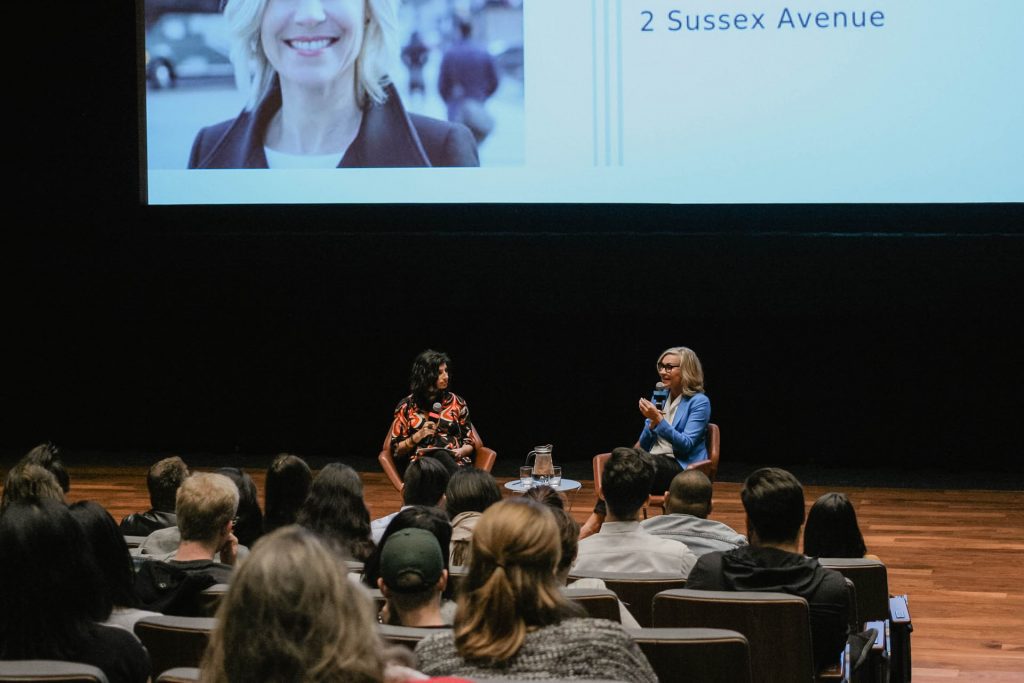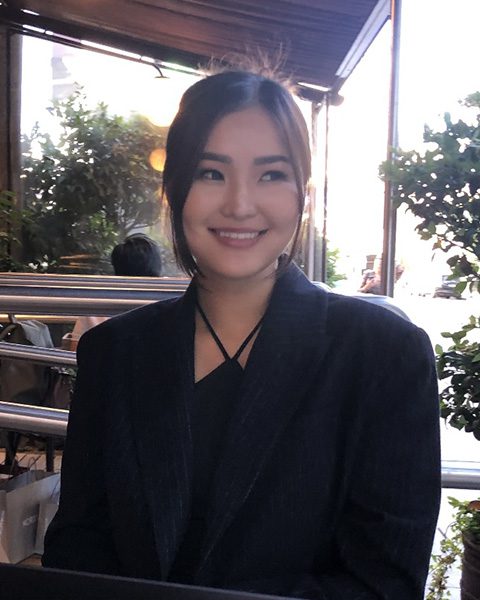 Experiential Learning
Experiential Learning
Experiential learning allows you to learn through reflection on doing. Within the Urban Studies Program (USP), we focus on a specific type of experiential learning known as community-engaged learning. Community-engaged learning is at the heart of USP, offering you exciting opportunities to apply your classroom knowledge to a real-world setting, and expand your career path and professional networks.

Work with a growing list of community partners in and beyond Toronto
Community-engaged learning means we create opportunities with a wide variety of community partners for USP students to engage in and learn about specific aspects of city building, advocacy, and research.
The majority of our community partners are based in Toronto – we like to think of Toronto as our city-building laboratory – but we learned during the pandemic that we could facilitate successful partnerships remotely with community leaders far beyond Toronto. We are continuing to expand those opportunities to new cities and areas of city building.
Connect your classwork to the community
Community-engaged learning connects what we discuss in our classrooms to what is happening in the world around us. We are committed to centring communities and their perspectives within the challenges and opportunities that cities and urbanites currently face. Our goal is that your community-engaged learning experience will inspire you to develop and pursue a vision of a more liveable and just urban future.
Find the courses that speak to your goals and interests
Second year:
You can find courses with a community-engaged learning component beginning in second year. For example, URB236: A Multidisciplinary Introduction to Urban Studies II: Urban Changes and Theoretical Application, gives you the opportunity to be matched with a community organization for a 12-hour placement. This becomes the basis for a final paper and an academic poster – both of which work to connect course readings and discussions to the experiences of working on city building.
Third year:
There are several third-year courses with a community-engaged component. For example, in URB337: Housing and Homelessness, you will engage with policy and lived-experience experts who are working to address a myriad of issues related to homelessness. And one of our newest courses, URB338: City Challenges, City Opportunities in a 21st-Century Toronto, is a partnership between the City of Toronto and several other colleges and universities in the city. You will get to hear directly from policy makers and experts on a range of challenges facing Toronto.
Fourth year:
Community-engaged learning is a central component of many of our fourth-year courses, including our two capstone options. In URB437: Experiential Learning in the GTA, you’ll be matched with a community-building organization in Toronto for an eight-hour-per-week placement that runs from September to April. Class time is used to reflect on your placement experience, and to connect this to the academic study of the city.
In URB431: The Multidisciplinary Urban Capstone Project, you will be part of a team of undergraduate students from departments and faculties across the St. George Campus that is matched with a community organization to consult on a design challenge identified by the organization. You will work to provide options, and ultimately a prototype of a design solution.
URB430: The Changing Culture of Regent Park is a partnership between USP and Focus Media Arts Centre in Regent Park. You will work closely with youth from Regent Park to produce a media project addressing a specific issue in the community. These projects are featured in a public exhibition at the end of the course.
In URB432: Advanced Topics in Urban Studies – Urban Studio: Public Participation in Policy Making, you will learn how to design and implement a community engagement process, and apply this knowledge towards the creation of a project or report for a real-world client.
What is community-engaged learning?
Community-engaged learning is a teaching and learning strategy that integrates meaningful community partnerships with instruction and critical reflection. You receive an enriched student experience and learn civic and social responsibility. At the same time, communities benefit from students’ fresh ideas, diverse perspectives, and creative problem-solving skills.
Changing the future of Toronto through an URB432 placement
“You realize you are part of something and can contribute to something that actually might change the future of the city and can benefit a lot of people.” This is how one URB432 summer student described the community-engaged learning component of the course. Read more about how students have tackled community engagement with City of Toronto planners.
Do you work for an organization interested in partnering with USP?
Is your local, regional, or national organization interested in placing students from our program? We are always looking for new community partners for a select number of courses. Our current partners include the City of Toronto, Evergreen, and the Canadian Urban Institute.
Student acquires important skills in MaRS placement
